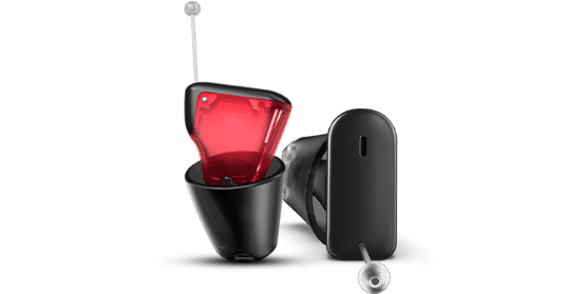
hear.com – India’s leading destination for advanced hearing aids & expert care
Frequently Asked Questions
At hear.com, we understand that you might have several questions about hearing loss and hearing aids. We’ve compiled a handy list of Hearing Loss FAQs that cover many aspects about your hearing health.

Table of Contents
- Hearing loss FAQs
- Hearing aid FAQs
Q) How do I know if I need a hearing aid?
People generally tend to put off getting hearing aids because in most cases they can still hear sounds to some degree. However, not dealing with your hearing loss in time can cause your brain to forget how to process sounds entirely.
Hearing loss is a progressive disease: If you notice symptoms of hearing loss, you should get a hearing test as soon as possible to prevent your hearing loss from deteriorating. Wearing a hearing aid is usually the most effective way to do so.
Q) I’m in my 50s but I already seem to have hearing loss!
If you think that you may have hearing loss, it is imperative that you get a hearing test done as soon as possible. Hearing loss can occur at any age and be caused by a number of reasons. These reasons can be genetic, ototoxic or be caused by trauma of some kind. Depending on your level of hearing loss, you may need to use hearing aids.
Q) Can hearing aids help with tinnitus?
Absolutely! Modern hearing aids have features built-in that can help minimize the effects of tinnitus. You can read more about hearing aids with tinnitus therapy here.
Q) I can hear a little, do I still need hearing aids?
Think of hearing aids as a device that boost your existing listening capacity to somewhat normal levels. Hearing loss happens to be a progressive condition – it gets worse over time if left untreated. This is why it’s important to get hearing aids while there is still some natural hearing capability left.
Q) I can't hear well in only one ear, do I need a hearing aid?
Hearing aids can also help deal with unilateral hearing loss, where hearing is limited in only one ear. If you have hearing loss in one ear, your other ear is likely to lose hearing quickly as it tries to make up for your decreased hearing ability, making it necessary to protect a healthy ear with a hearing aid.
In fact, you may feel that only one ear is bad, but a detailed examination often shows that both ears have hearing loss, so it is recommended to deal with unilateral hearing loss quickly with a hearing aid.
Q) The sound of my hearing aids is not what it used to be.
Depending on the issue, you can get the sound adjusted from the hearing care centre where you purchased the hearing aid. In general, you can hear beeping when the shape of the ear changes slightly over time and the hearing aid does not fit properly.
There are also various situations such as deterioration of hearing aid parts, poor contact due to the wearer’s earwax, and water damage to the device.
Q) How long do hearing aids last?
On average, a hearing aid can last for about 5 years. However, this can vary depending on your usage and how they are maintained.
Q) Can you tell me the price of a good hearing aid?
Hearing aid prices depend on the variant advised to you by the hearing care centre. Depending on the severity of your hearing loss, you may require an ITE hearing aid (in-the-ear), or a BTE hearing aid (Behind-the-ear).
You can check the approximate range of hearing aid prices here.
Q) How long does it typically take to fully charge rechargeable hearing aids?
Depending on the variant, it can take 4-6 hours to fully charge your hearing aids.
Q) I need an invisible hearing aid, which device is right for me?
The Signia Silk CIC is “virtually invisible”.
Q) Can I connect my hearing aids to my smartphone?
Yes, you can! Connecting your hearing aids to its respective app on your smartphone can allow you to instantly and seamlessly tune certain aspects of your hearing. Many of our hearing aids also allow you to transmit audio from your smartphone directly to your hearing aids or enable this functionality via an accessory.
Q) Can I stream music, TV or phone calls directly to my hearing aids?
Depending on the device you’ve chosen, you can! ITE hearing aids such as the Silk allow you to speak on the phone normally, by placing it on your ear.

